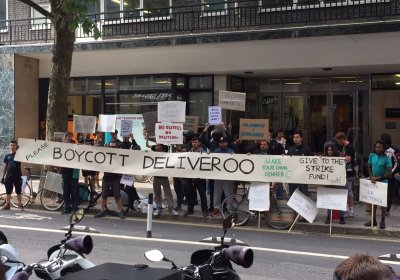A new agreement between the Transport Workers Union and Uber means food delivery and rideshare drivers will have safer, fairer working conditions and dispute procedures. Jim McIlroy reports.
Uber
"Old fashions please me best; I am not so nice To change true rules for odd inventions."
William Shakespeare, The Taming of the Shrew, 1593.
On May 21 Australian Greens deputy leader Adam Bandt introduced a small but potentially significant private member's bill into the House of Representatives.
Anyone who had the pleasure of hearing Jon Faine’s dismemberment of the gig economy, as represented by the hapless Brent Thomas, Head of Public Policy at Airbnb ANZ, on ABC Radio last year will never forget it.
It was excruciating. You could hear the air going out of poor old Brent when Faine pressed him on how much tax Airbnb actually pays in Australia, and pressed him and pressed him.
As if it were wrapped in flammable polyethelene (PE) cladding, Uber’s seemingly unstoppable plan for world domination caught fire in London last month; and the blaze might be as hard to extinguish as the inferno that engulfed the 24-storey Grenfell Tower in the same city in June.
The deadly fire at Grenfell, and Uber’s repeated failings — in terms of vehicle safety, sexual assault, regulatory avoidance and driver exploitation — are both the direct result of under-regulation and multi-layered regulatory and policy failure.



